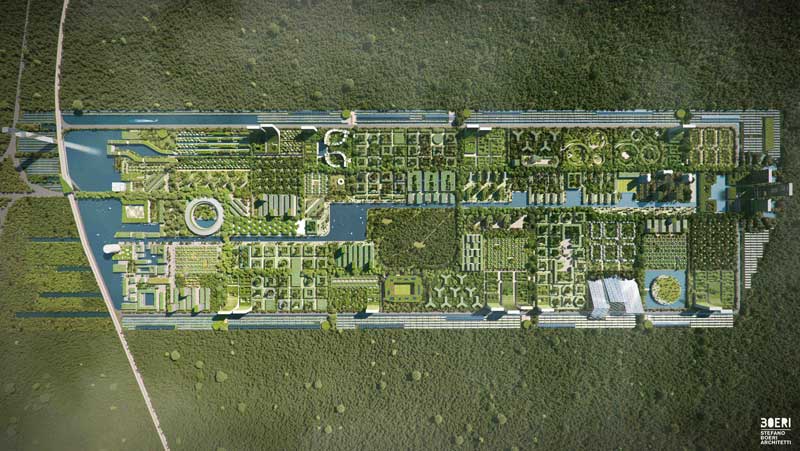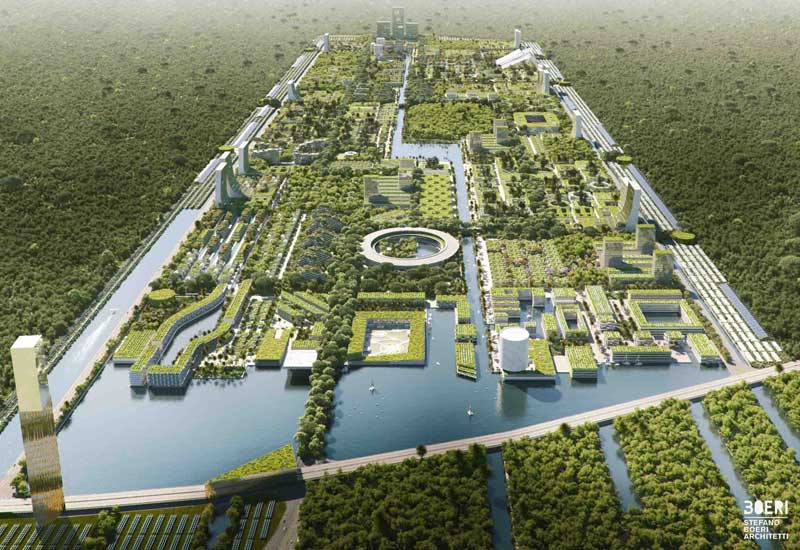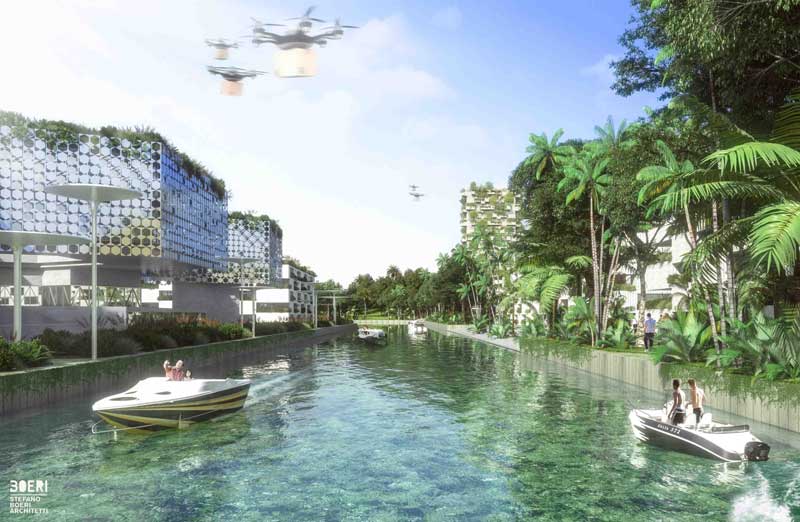
Por Mariana López
November 27, 2019
Contxto – Is it Avatar’s Pandora? Nope. Xandar from Guardians of the Galaxy? Nay. It’s Smart Forest City! A green, futuristic-looking place unveiled for real estate developer, Grupo Karim’s. This proposal is set to (possibly) be built in Cancún at an unspecified date.
Created by Italian designer and architect, Stefano Boeri, the project puts the environment and innovation at the forefront of every corner and street. What’s more, thanks to its agricultural irrigation systems and solar panels, it would be completely food and energy self-sufficient.
However, before jumping to conclusions it is important to remember this is merely a proposal to substitute a shopping mall previously intended for the same plot of land. So, it’s either Tenochtitlan 2.0 or nightmare in suburbia. Nothing’s official just yet.


According to Boeri’s blueprints, this eco-urban paradise would be home to 130,000 people distributed across 557 hectares. Perhaps its most distinguishing feature is its plentiful vegetation of shrubbery, green roofs, parks, and an average of 2.3 trees per inhabitant.
Meanwhile, residents can leave their gasoline-powered vehicles outside as, within the city, there’s a grid of electric and semi-automatic mobility systems. Plus, it promises to be cyclist and pedestrian-friendly.
This would all result in the absorption of 116,000 tons of carbon dioxide.
Moreover, the project envisions being a hub for business, research, and education on all things sustainable.

All across the region, smart cities—that is; places that combine the Internet of Things (IoT) and similar tech integrated into an urban setting—are emerging. However, most are not located in the big, better-known metropoles, but rather in smaller cities. This facilitates the transition towards tech.
For example, the government of Mexico’s second-largest city, Guadalajara, aims for it to morph into a “Digital Creative City.” It is to be a place that mixes its colonial roots with innovation to achieve economic development.
Meanwhile, in Colombia’s Montería, local authorities aspire to be the point of reference in terms of Caribbean sustainability and tech.
It is a well-known fact that Latin America’s urban areas are overcrowded. Consequently, smart cities may provide much-needed relief to urban areas with their efficient use of public space.
-ML

Por Stiven Cartagena
January 12, 2026